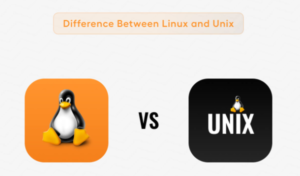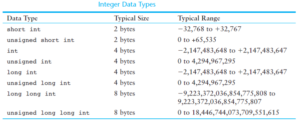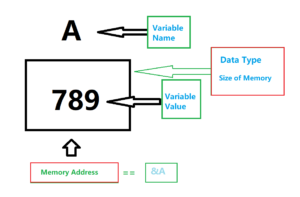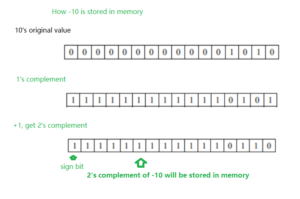In C programming, memory is an essential component that is used to store and manipulate data during program execution. Memory in C programming refers to the physical space in a computer’s memory where data and instructions are stored for processing.
C programming also provides pointers, which are variables that store memory addresses.
Pointers in C allow programmers to access and manipulate memory directly, enabling efficient memory management and more flexible programming.
Therefore, memory is a critical concept in C programming and plays a significant role in the performance and functionality of programs.
From a hardware perspective, memory is actually a component of a computer (generally called a memory module or RAM module). Depending on the different hardware implementation principles, memory can be divided into SRAM and DRAM (DRAM also has many generations, such as the earliest SDRAM, later DDR1, DDR2, LPDDR, etc.).
From a logical perspective, memory is a group of spaces that can be randomly accessed (random access means that as long as an address is given, the memory address can be accessed) and can be read and written (of course, logically, it can also be limited to read-only or write-only). In programming, memory is used to store variables (because there is memory, C language can define variables, and each variable in C language corresponds to a unit in memory).
Memory is actually composed of an infinite number of memory cells, each with a fixed address called a memory address. This memory address corresponds uniquely and permanently to the memory cell.
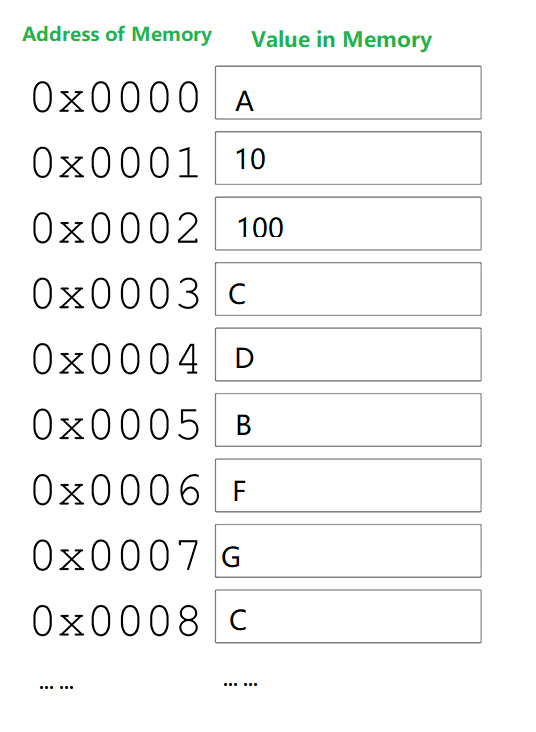
Variables in C language are identifiers used to store data of different types, such as integers, characters, floating-point numbers, etc. In C language, the value of a variable is stored in memory.
Memory is the place where the computer stores data and programs. Memory can be seen as a large array, with each unit having a unique address. Programs can access and manipulate data in memory by specifying memory addresses. In C language, variables are also stored in memory, and the variable name is actually an alias for the variable’s address in memory.
When a variable is declared in a program, the C compiler allocates a block of memory to store the variable’s value. The memory address of a variable can be obtained using the & operator. For example, in the following code:
int x = 10;
The variable x is allocated a 4-byte memory space, and its value is initialized to 10. The program can access the variable using x, or obtain the memory address of the variable using &x.
When a program reads or writes the value of a variable, it is actually accessing the variable’s location in memory. C language’s pointer type provides the ability to access memory directly, and programmers can use pointers to manipulate data in memory. For example, the following code uses a pointer to access the value and address of variable x:
int x = 10;
int *p = &x;
printf("The value of x is: %d\n", *p);
printf("The address of x is: %p\n", p);
In this code, the pointer p points to the memory address of variable x, and the program uses *p to get the value of variable x, and %p to print the memory address of variable x.
In summary, there is a close relationship between variables and memory in C language. Variables are stored in memory and accessed and manipulated through memory addresses. Programmers can use pointers to directly manipulate data in memory, thereby achieving more flexible and efficient program design.

